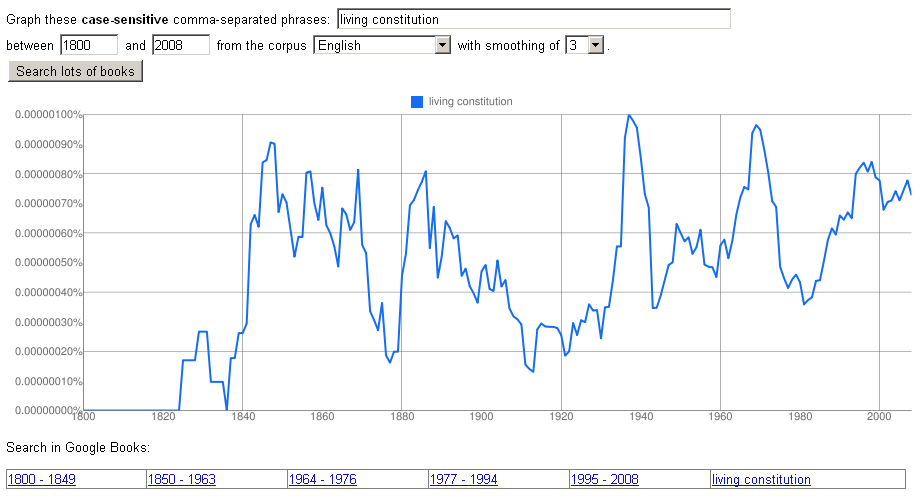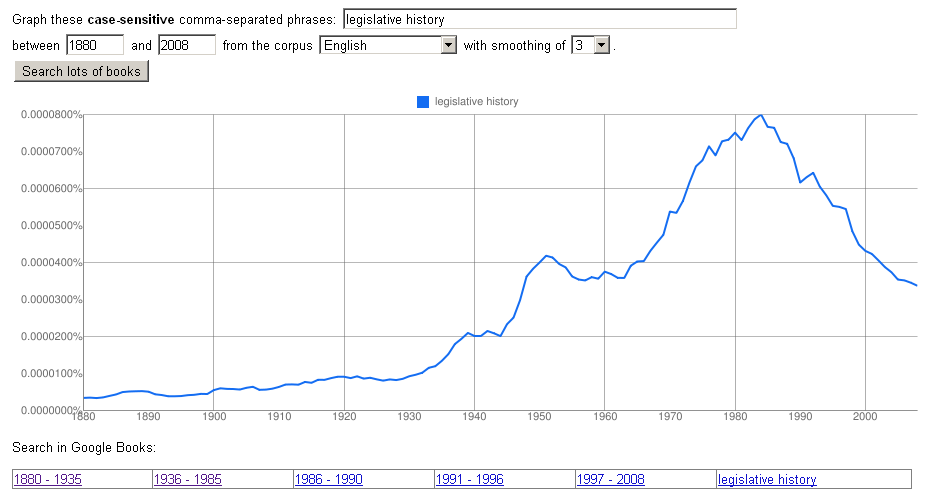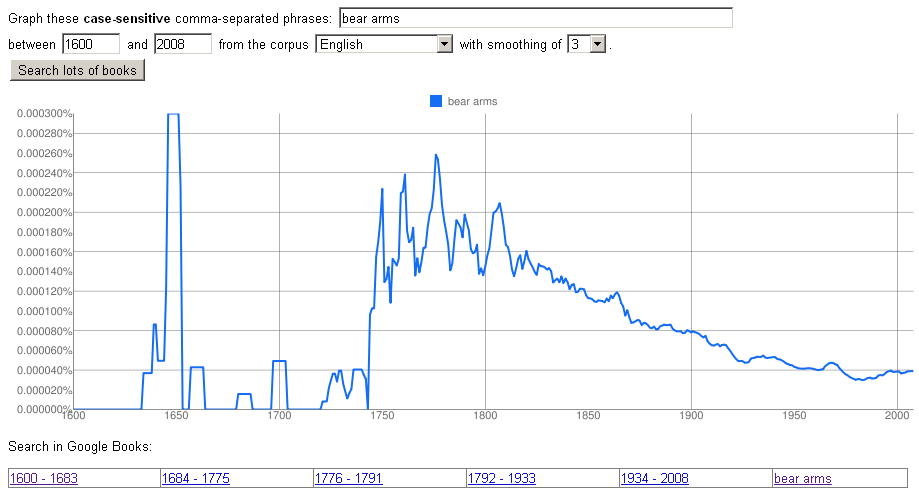Check out Google’s Books Ngram Viewer. Here is how the New York Times describes it:
The digital storehouse, which comprises words and short phrases as well as a year-by-year count of how often they appear, represents the first time a data set of this magnitude and searching tools are at the disposal of Ph.D.’s, middle school students and anyone else who likes to spend time in front of a small screen. It consists of the 500 billion words that are contained in books published between 1800 and 2000 in English, French, Spanish, German, Chinese, Russian and Hebrew.
This will be an Originalist’s dream. I’ve already run searches for due process, bear arms, privileges immunities, and other terms.
Update: Thanks for the link Professor Volokh
I am having fun with Google’s new Ngram Viewer. This program allows you to check the prevalence and popularity of various terms over the years. I have inputted several popular constitutional terms.
Substantive Due Process, contrary to popular belief, did not begin during the Lochner era. In fact the term didn’t come into the vernacular until the middle of the 20th Century. This graph illustrates that nicely.
Curiously, the term living constitution, often thought to be a product of the Warren Court, has been in common use for quite some time.
Is reliance on legislative history a recent phenomenon, or did it begin much earlier? Would it too much of a stretch to note the decline correlates to Justice Scalia’s ascension to the bench? ‘Nah.
The term bear arms seems to have peaked in the 1640s, which roughly corresponds to the English Civil War. It also peaked around the revolutionary era.



